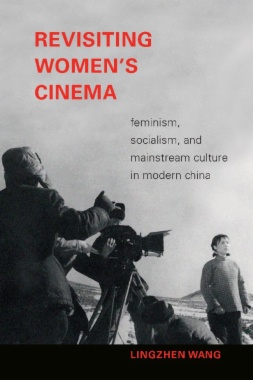In Revisiting Women’s Cinema, Lingzhen Wang ponders the roots of contemporary feminist stagnation and the limits of both commercial mainstream and elite minor cultures by turning to socialist women filmmakers in modern China. She foregrounds their sociopolitical engagements, critical interventions, and popular artistic experiments, offering a new conception of socialist and postsocialist feminisms, mainstream culture, and women’s cinema. Wang highlights the films of Wang Ping and Dong Kena in the 1950s and 1960s and Zhang Nuanxin and Huang Shuqin in the 1980s and 1990s to unveil how they have been profoundly misread through extant research paradigms entrenched in Western Cold War ideology, post-second-wave cultural feminism, and post-Mao intellectual discourses. Challenging received interpretations, she elucidates how socialist feminism and culture were conceptualized and practiced in relation to China’s search not only for national independence and economic development but also for social emancipation, proletarian culture, and socialist internationalism. Wang calls for a critical reevaluation of historical materialism, socialist feminism, and popular culture to forge an integrated emancipatory vision for future transnational feminist and cultural practices.
- Cover
- Contents
- Illustrations��������������������
- Acknowledgments
- Introduction
- 1. Socialist Feminism and Socialist Culture Reconsidered: Institutionalized Practice, Proletarian Public Space, and Experimental Mainstream Cinema
- 2. Articulating Embedded Feminist Agency in Socialist Mainstream Cinema: Wang Ping and The Story of Liubao Village (1957)
- 3. Socialist Experimentalism, Critical Revision, and Gender Difference: Dong Kena’s Small Grass Grows on the Kunlun Mountains (1962)
- 4. Feminist Practice after Mao: Independence, Sexual Difference, and the Universal Model
- 5. Film Theory, Avant-Gardism, and the Rise of Masculine Aesthetics: Chinese Mainstream Cinema in the 1980s
- 6. Alternative Experimental Cinema: Zhang Nuanxin’s Socially Committed Mainstream Film Practice of the 1980s
- 7. The Black Velvet Aesthetic: Universal Cultural Feminism and Chinese Neotraditionalism in Huang Shuqin’s Woman Demon Human (1987)
- Notes������������
- Bibliography�������������������
- Index������������
- A
- B
- C
- D
- E
- F
- G
- H
- I
- J
- K
- L
- M
- N
- O
- P
- Q
- R
- S
- T
- U
- V
- W
- X
- Y
- Z

